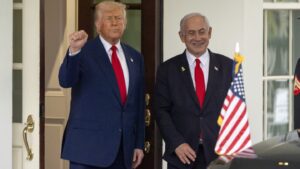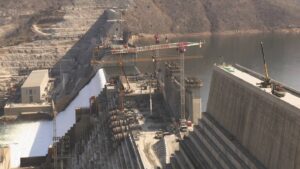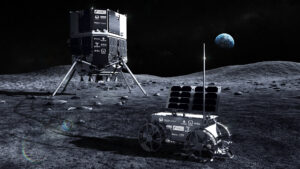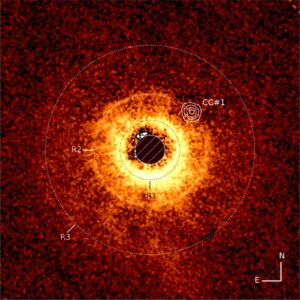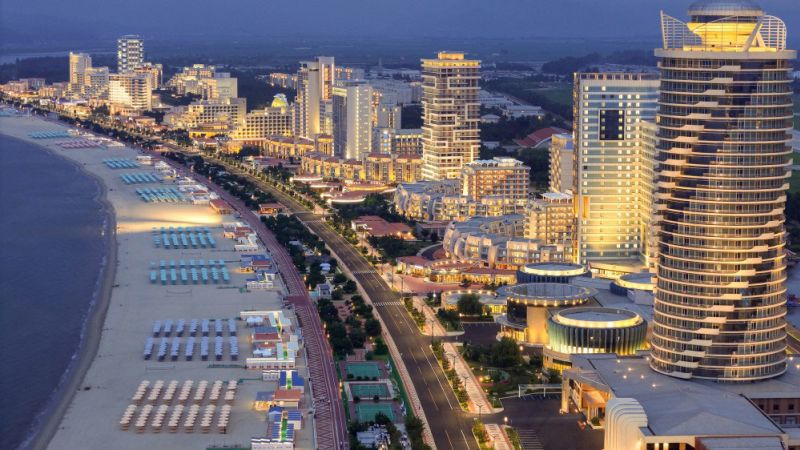
Seoul, CNN — North Korean leader Kim Jong Un has inaugurated a new beach resort, the Wonsan-Kalma Coastal Tourist Zone, which state media touts as a “national treasure-level tourism city.” This grand opening comes amid ongoing reports of severe hardship and hunger within the isolated nation.
According to the Korean Central News Agency (KCNA), the expansive Kalma resort boasts waterparks, high-rise hotels, and accommodations for nearly 20,000 guests. This development is a striking display of opulence in a country known for its secrecy and economic struggles.
The Wonsan-Kalma resort, located on North Korea’s eastern coast, was unveiled on June 24. While KCNA announced that the resort would begin serving domestic guests on July 1, it provided no details regarding eligibility or transportation.
Domestic and International Ambitions
Earlier this month, North Korea opened the Kalma train station, purportedly to enhance travel convenience to the resort. Additionally, the resort’s proximity to an international airport suggests an intention to attract foreign currency through international tourism.
International presence at the opening ceremony was limited to the Russian ambassador and his staff, highlighting Pyongyang’s increasing alignment with Moscow amidst its isolation from the West. This follows a history of tightly controlled tourist experiences, such as the Russian tourists’ monitored ski holidays at the Masikryong resort.
“Wonsan-Kalma is open to just North Koreans for now, but we should not be surprised to see Russians at the resort in the not-too-distant future,” said Rachel Minyoung Lee, a non-resident fellow with the 38 North program at the Stimson Center.
Historical Context and Future Prospects
North Korea’s foray into international tourism is not unprecedented. In the late 1990s, the country opened the Mount Kumgang area to South Korean tourists, a venture that provided a significant influx of hard currency. However, the initiative ended abruptly in 2008 after a South Korean tourist was fatally shot by a North Korean soldier, leading to the suspension of tours.
The new resort raises questions about North Korea’s readiness to expand its international tourism sector. Currently, Russian tourists appear to be the only foreign visitors with access, with Vostok Intur offering tour packages priced at approximately $1,840.
Kim Jong Un has indicated plans to formalize the expansion of tourism zones at the next ruling party congress. The Kalma project is part of a broader strategy to develop “promising large-scale tourist and cultural zones” throughout the country.
Economic and Political Implications
The completion of the Kalma resort is seen domestically as a triumph for Kim’s regime, demonstrating development despite international sanctions. Kim’s personal investment in the project, underscored by his frequent visits and guidance, highlights its significance.
Experts remain skeptical about the resort’s long-term economic viability. Dr. Edward Howell, a North Korea expert at the University of Oxford, notes that Wonsan-Kalma is not a typical tourist hotspot and questions whether it will provide the economic boost that Kim seeks.
“Of note, since 2020, Kim Jong Un has adopted an increasingly severe approach towards social control; quashing any signs of the virus of outside information and ideologies entering the DPRK,” Howell emphasized.
The resort’s opening also carries symbolic weight, with Kim’s family present at the ceremony, suggesting an intention to sustain the project for future generations.
As North Korea navigates its complex geopolitical landscape, the success of the Kalma resort may hinge on its ability to attract foreign tourists while maintaining its stringent control over visitors.
